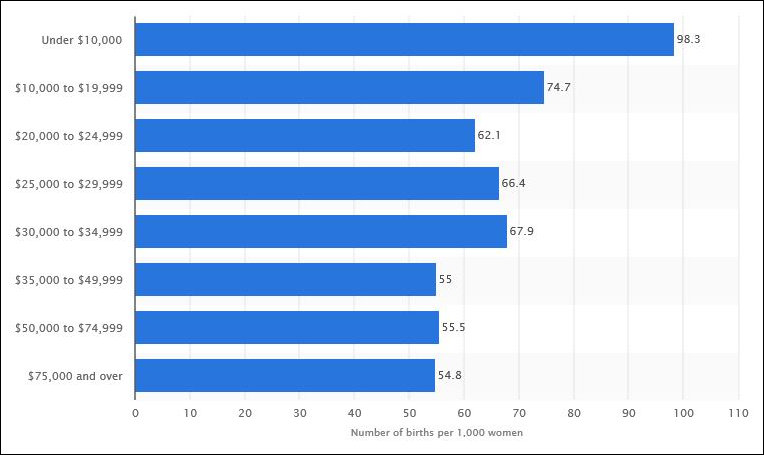by James A. Bacon
Like millions of other Americans, I was horrified by the videos detailing the traffic in aborted fetal tissues and organs in which Planned Parenthood takes part. But I’m not joining the parade of conservatives calling for the de-funding of the organization. Not only would de-funding be a meaningless gesture — Planned Parenthood doesn’t use federal funds to finance its abortion operations — it would not address the complex moral trade-offs arising from the harvesting and sale of fetal parts. That trade would continue even if Planned Parenthood shut down tomorrow.
What Planned Parenthood does use federal money for is family planning, pregnancy tests and prenatal care for low-income women. While conservatives have legitimate reasons to oppose abortions — I share some of their reservations, especially concerning late-term abortions — conservatives should support Planned Parenthood’s distribution of contraceptives on the grounds that family planning is the most effective anti-poverty (and anti-abortion) program we know of.
Poverty in America is intractable. Fifty years after Lyndon Johnson declared a war on poverty, we’re still fighting it. The usual liberal solution — spending more money on income transfers and creating new poverty-fighting bureaucracies — is not working. Indeed, the liberal paradigm perpetuates poverty by weakening the incentive of poor people to lift themselves from their condition.
We continually hear that more children live in poverty than adults. That’s because, while many people manage to rise out of poverty, their departure from the ranks of the poor is more than offset by the large number of children born in poor households. Indeed, women in households making less than $10,000 per year give birth at nearly twice the rate of women making $35,000 a year or more, as seen below.
And that raw fertility number understates the nature of the problem. Poor women also tend to bear children at younger ages than higher-income women, who tend to defer childbirth until after college and marriage. Thus, a poor woman bearing a daughter at age 18, who in turn bears another daughter at age 18, adds two people to the ranks of the poor in the same period of time in which a high-income career woman bearing her first child at age 36 adds to the ranks of the non-poor.
I rarely find myself in agreement with Washington Post columnist Catherine Rampell, but she has the facts on her side in this instance: Low-income women are no more likely than higher-income women to be sexually active, but they are less likely to use birth control. Thus, says Rampell, a poor woman is more than five times as likely to get pregnant by accident than an affluent woman.
Anyone interested in fighting poverty without expanding the federal entitlement programs that are driving the country toward fiscal insolvency should enthusiastically embrace the policy of giving poor women more control over their fertility. When poor women control their pregnancy, they are likely to have fewer children, and when they do have them, they are more likely to do so at a later date — waiting, perhaps, until after they have graduated from high school, found a job and possess the maturity and financial resources to be a good parent.
Family planning is one of the very few anti-poverty programs that work, and it’s arguably the most cost-effective. Conservatives need to stop venting about Planned Parenthood and turn their attention to the larger and more challenging job of crafting an ethically responsible approach to the trade in fetal organs.




